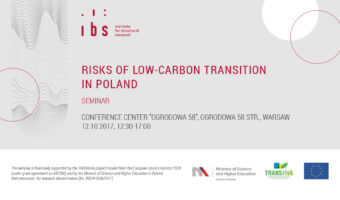The purpose of the seminar organised by our Institute was to present the potential low-carbon transition pathways and their consequences for the labour market, innovativeness of the economy and the energy security of the country. The issue of a transition to low-carbon economy raises doubts among politicians as well as representatives of industry and economists. On the one hand it allows for the reduction of emissions and participation in the development of fast growing technologies. On the other hand, it could reduce the demand for jobs in mining sector, increase energy system costs and limit the energy security. Below you could find the short summary and some presentations (in English).
Risks involved with the Winter Package
In the first presentation prof.Władysław Mielczarski from Łódź University of Technology introduced main risks involved with the Winter Package and its impact on energy sector. He indicated five dimensions of the Energy Union: decarbonisation, energy efficiency, energy security, internal energy market and research, innovation and competitiveness.
EUA prices in EU ETS
Robert Jeszke from National Centre for Emissions Management (KOBiZE) showed the key determinants and trends in EUA prices evolution. In his opinion the link between EUA prices and prices for energy commodities exists because energy carriers are substituted in the energy supply and some industries covered by the EU ETS have the ability to switch between various fuels in their production process. Increasing prices for gas and oil (with coal prices constant) will lead to an increasing demand for coal and therefore an increasing demand for EUAs.
The role of coal in Polish Energy Mix
Dr Artur Wyrwa from AGH University of Science and Technology presented simulations on the role of coal in the Polish Energy Mix. He concluded, that coal-fired units will still dominate power generation in the next 15-20 years in Poland, but the relative share of coal in the Polish energy mix will gradually decrease, in particular after 2030, giving a space for new power generation technologies. However, even in the optimistic scenario, the share of solid fuels in electricity production in Poland will decrease from current level of over 80% to 48% in 2050.
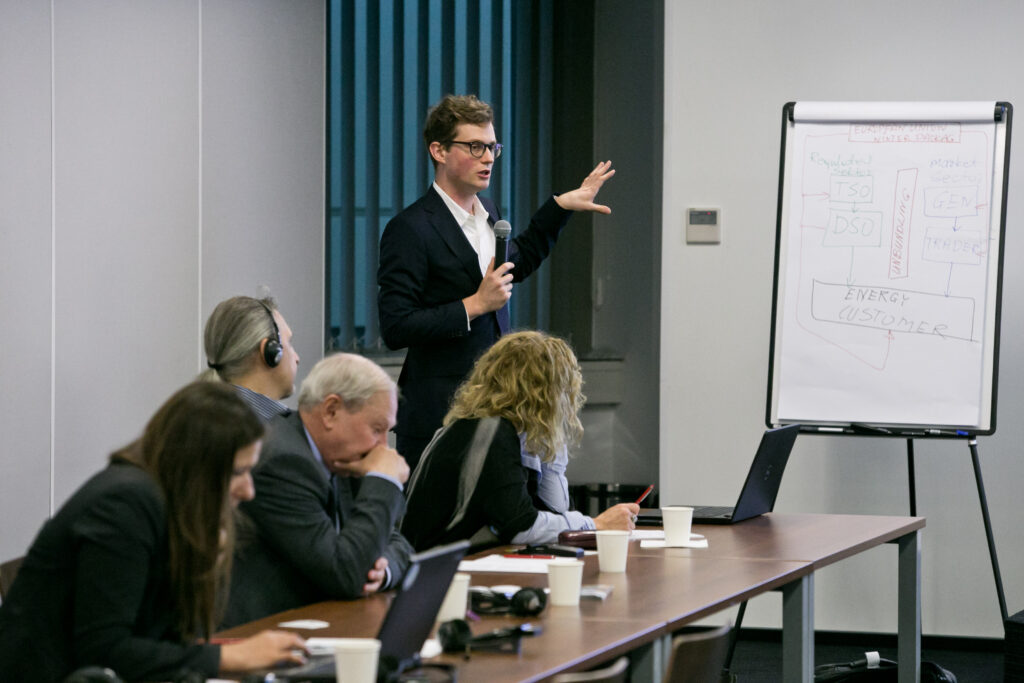
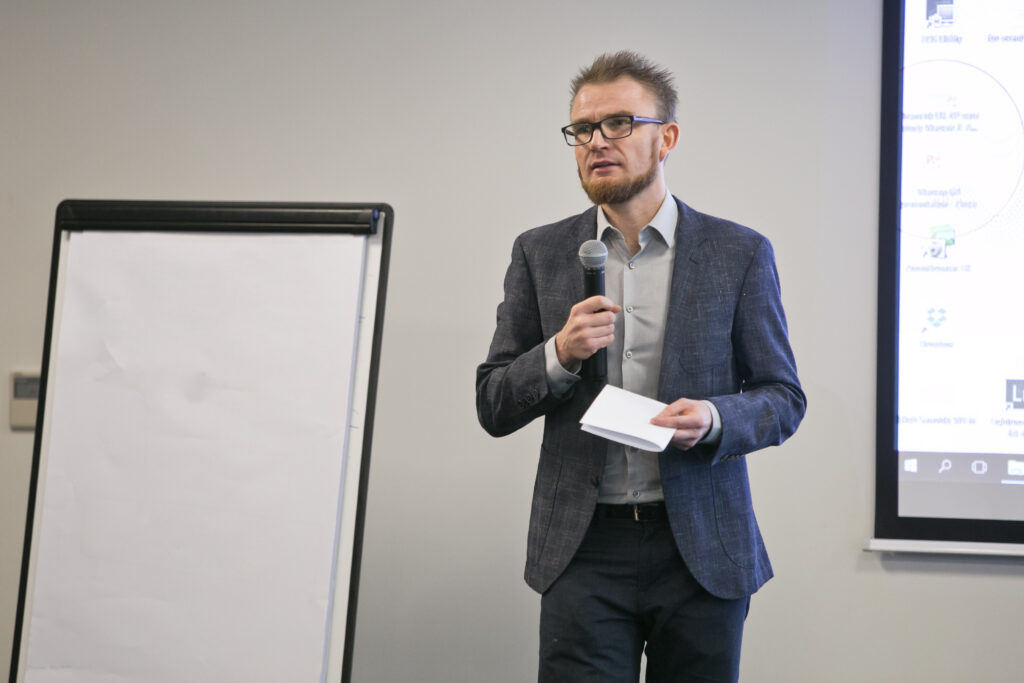
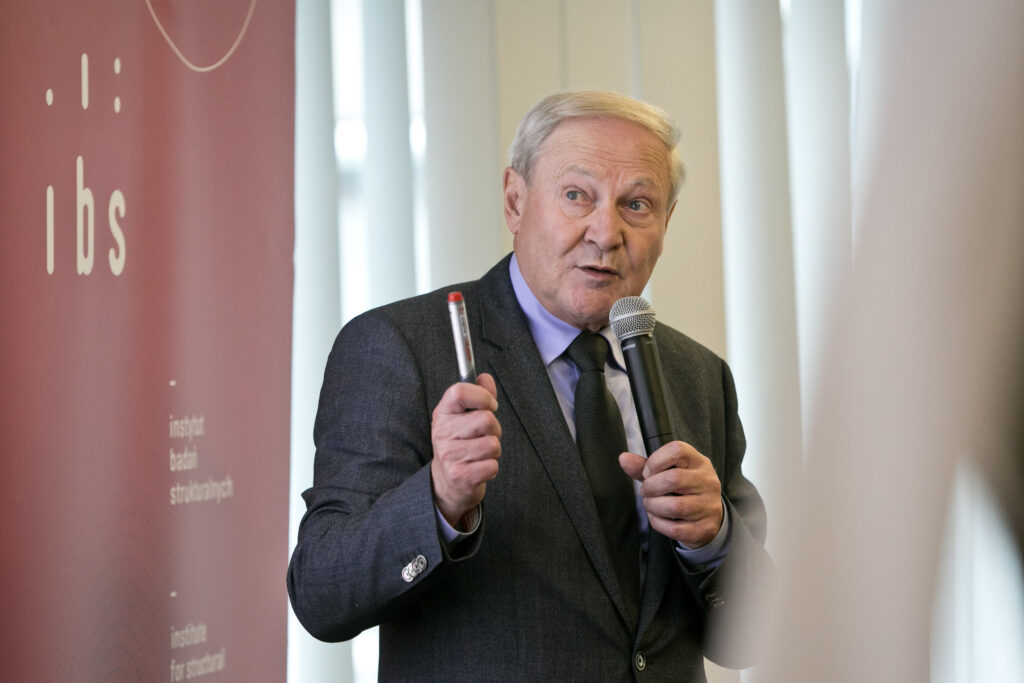
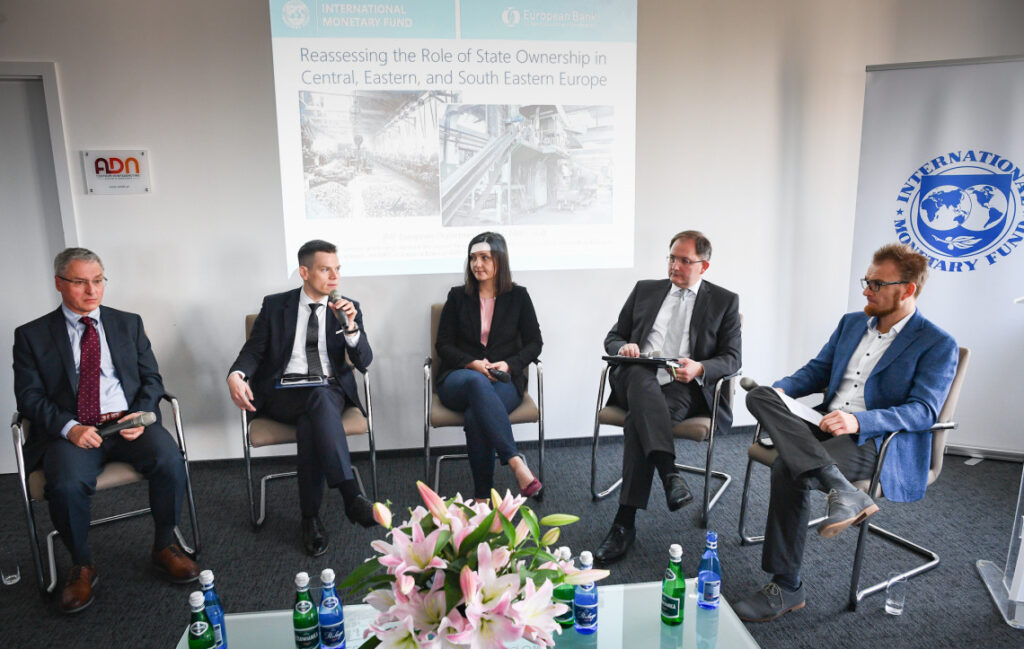
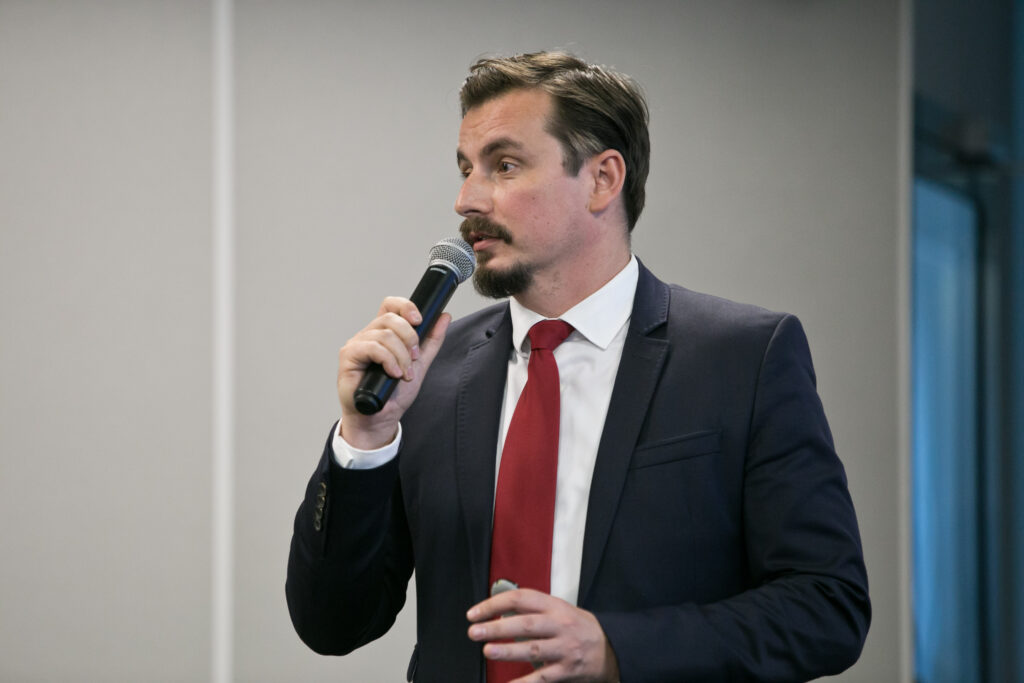
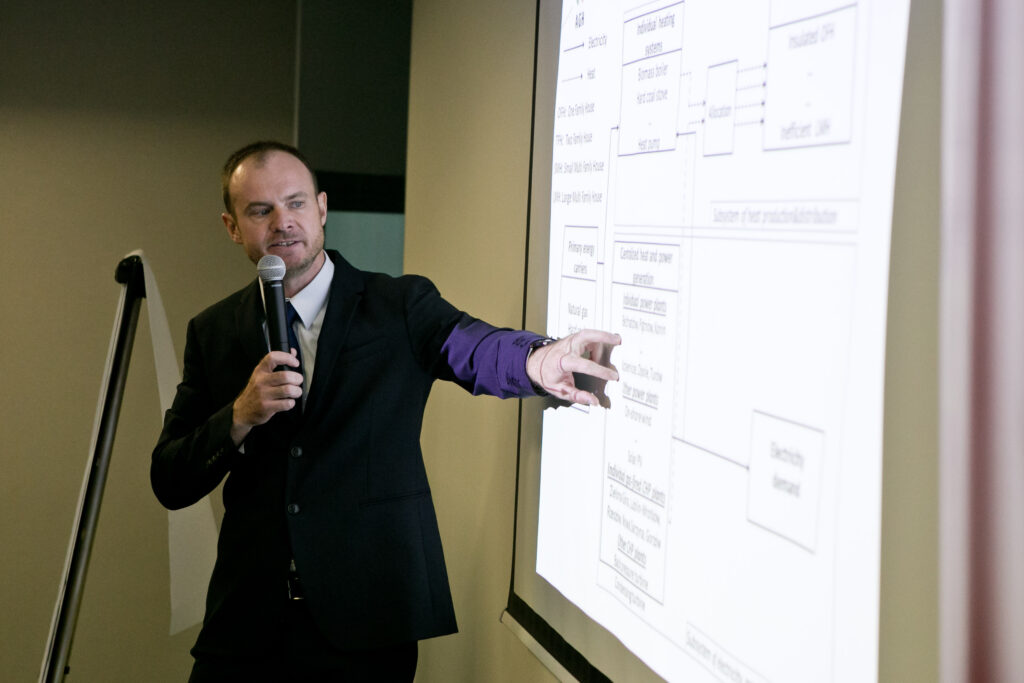
The costs of low-carbon transition for the labour market
Marek Antosiewicz from IBS presented the macroeconomic costs for the economy of implementing a low carbon transition pathway in Poland. The results were obtained using a combination of an energy system optimization model and a macroeconomic general equilibrium model called MEMO. Results show that the drop in the levels of GDP and employment would not exceed 1%, and what is more important, that this drop would only be temporary.
Fuzzy Cognitive Mapping method for structuring Stakeholder’s opinion on low-carbon transition
Prof. Haris Doukas and Alexandros Nikas from the National Technical University of Athens (NTUA) together with Aleksander Szpor (IBS) led workshops on Fuzzy Cognitive Mapping. This method is used to collect qualitative data and to process them quantitatively to support decision-making. The basis of the study are the respondents opinions on the problem and the possible solutions. Processing these data using the appropriate models allows you to structure and visualize problems for which economic or technological models do not provide enough answers. During the workshop, the influence of previously isolated uncertainties related to two paths of energy transformation was discussed: modernisation of coal energy and implementation of mix based on unstable energy sources.
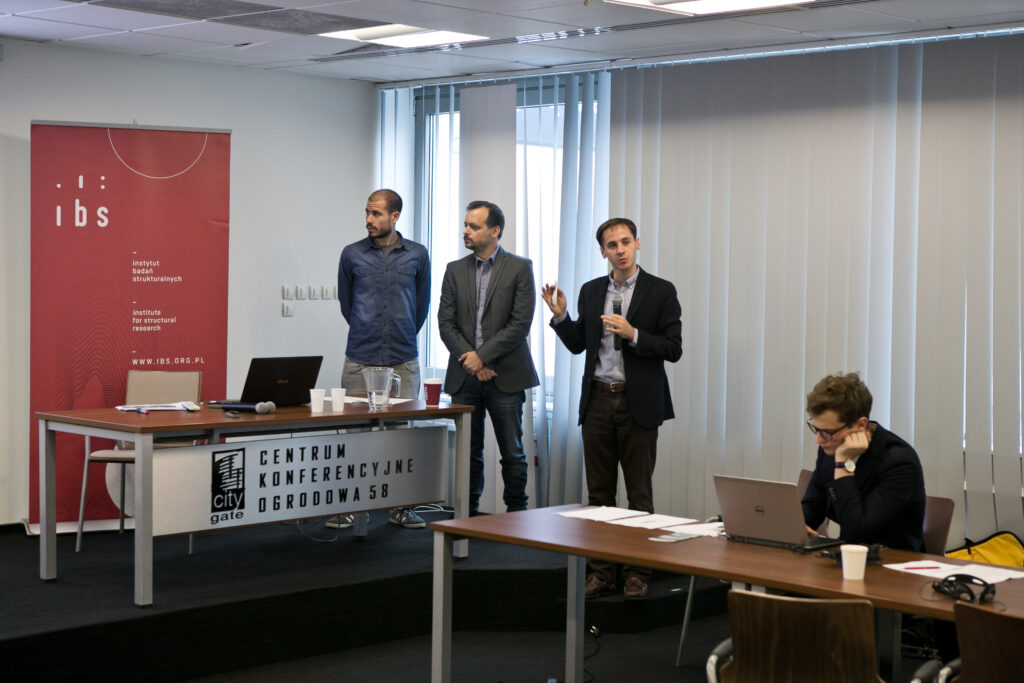
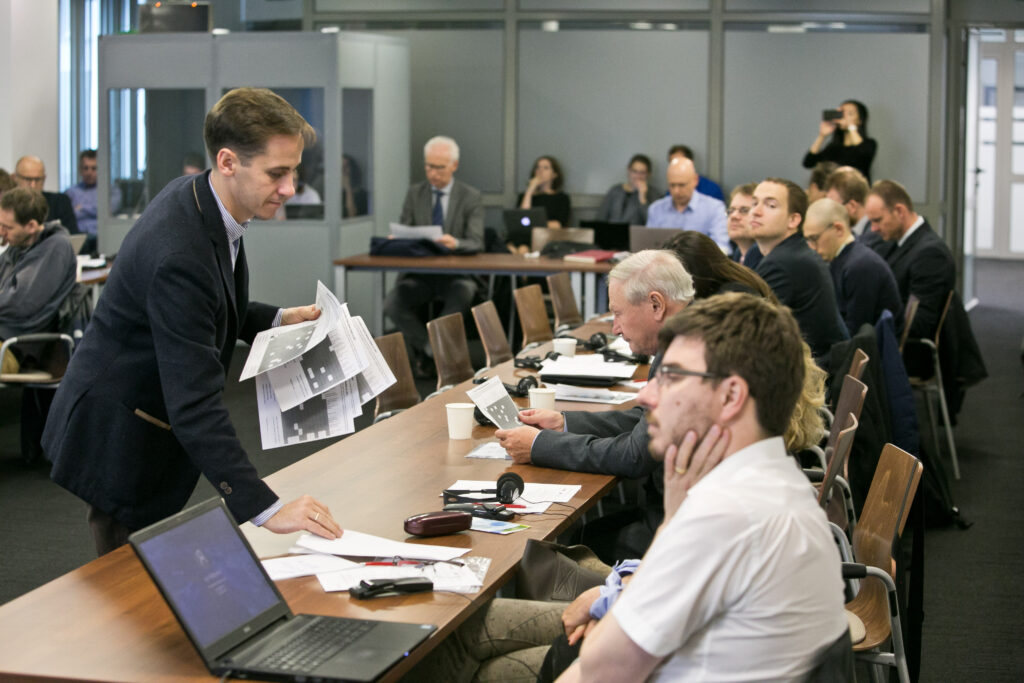
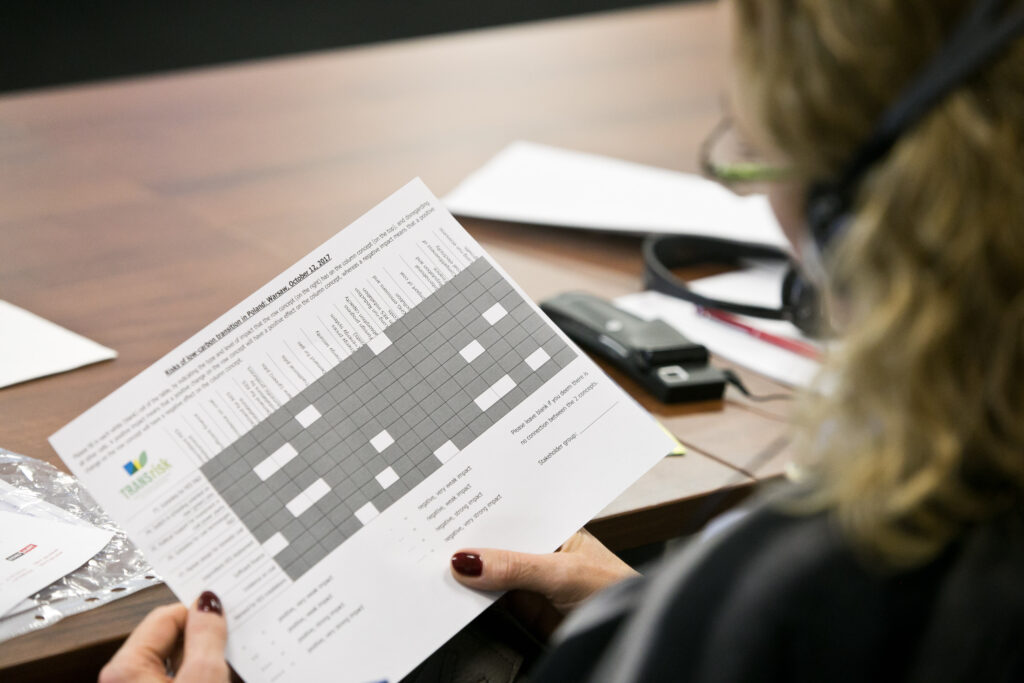
Do we need gas as a bridging fuel?
Then Paula Diaz and dr Oscar van Vliet from Swiss Federal Institute of Technology in Zurich, tried to answer the question, whether we need gas as a bridging fuel? The answer based on the example of Switzerland is “no” – gas delivers little to no cost savings as a bridging fuel in a system that switches to wind and solar.
Diversification of investments in energy technologies
Dr hab. Karolina Safarzyńska from the University of Warsaw described the importance of diversification in transitions to a low-carbon economy. The pros of diversification are keeping the options open for the future and improving adaptability of the system, while the cons are foregone costs of scale and specialization as well as costs of maintaining.
When and how to switch to green R&D?
Dr Jan Witajewski-Baltvilks from IBS sketched an economic model which predicts that an investment in green R&D in one part of the world (e.g. in EU) can encourage similar investment in the other parts of the world. Then he noticed that fast drop in Renewable Energy Sources (RES) instalation costs may lead to strategic delay of investors to invest in RES (article). Finally, the economist showed how green growth may generate macroeconomic costs when the flow of labour between sectors faces frictions (see more results).
The participants could also discuss the risks connected with low-carbon transition during the short discussion arranged by dr Jenny Lieu from the Science Policy Research Unit (University of Sussex) – co-ordinator of the TRANSrisk project.
js, as, jwb
***
We encourage to see the presentations below and to investigate the TRANSrisk project deliverables (see).
***
We would like to thank all speakers and participants for an interesting meeting!
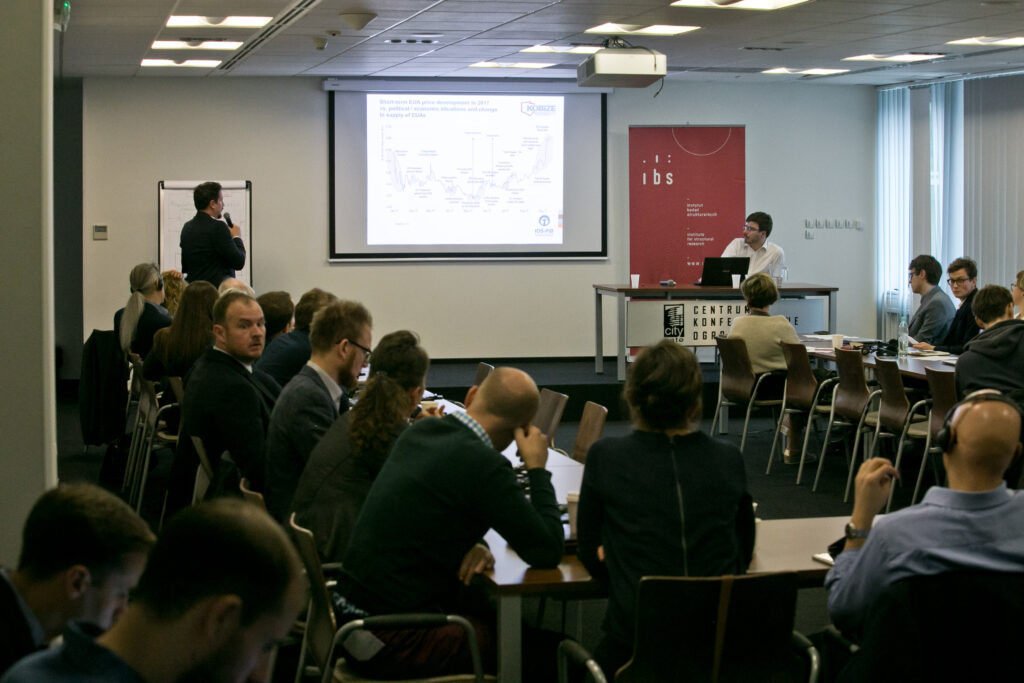
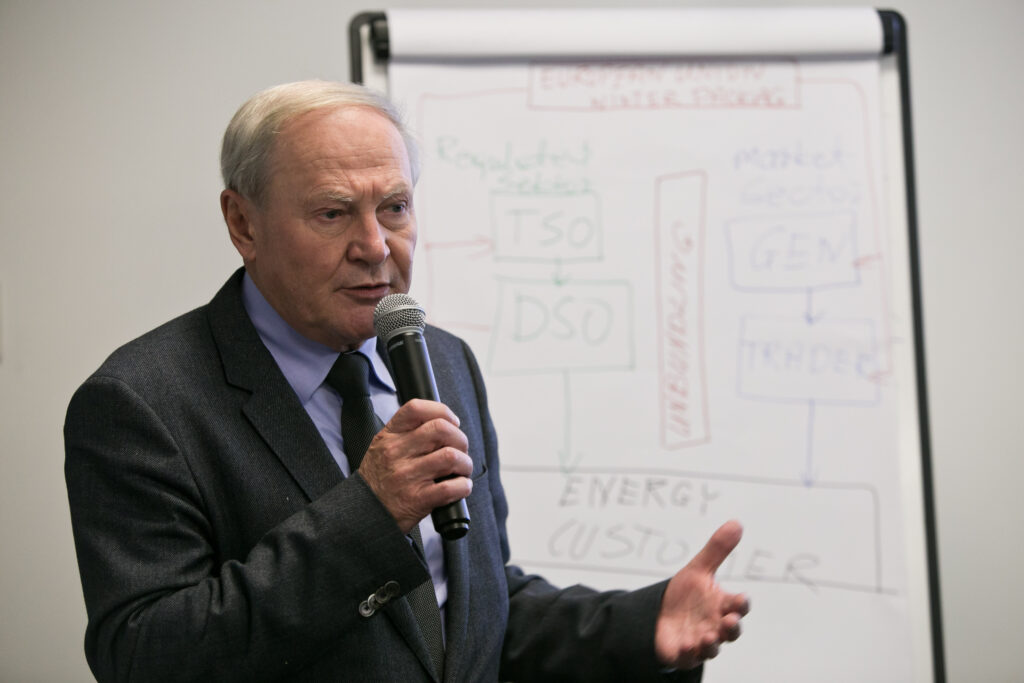
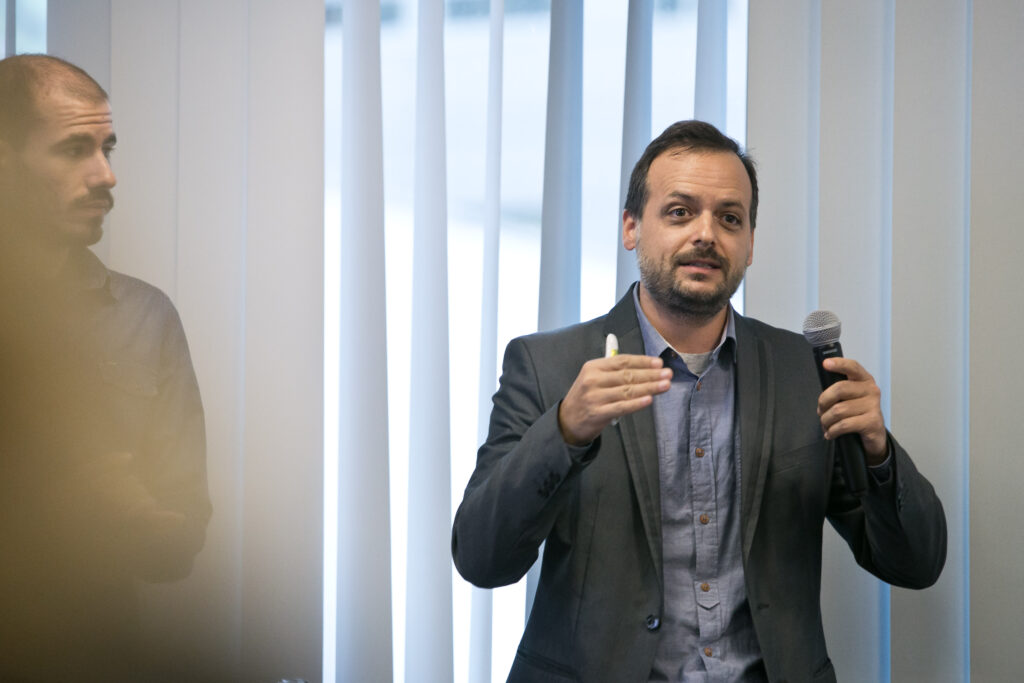
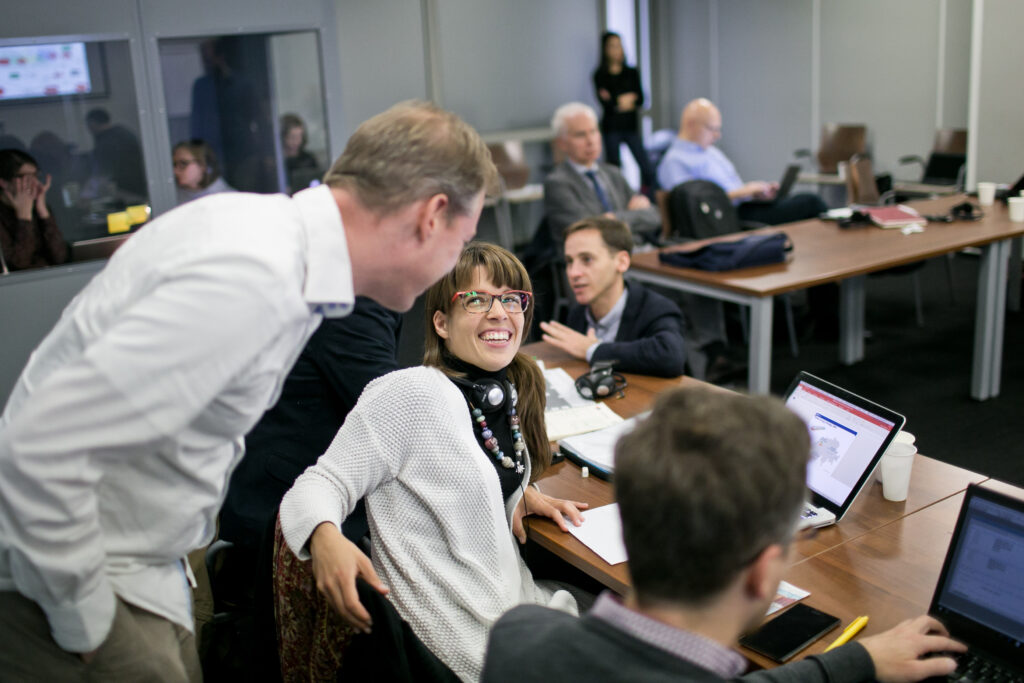
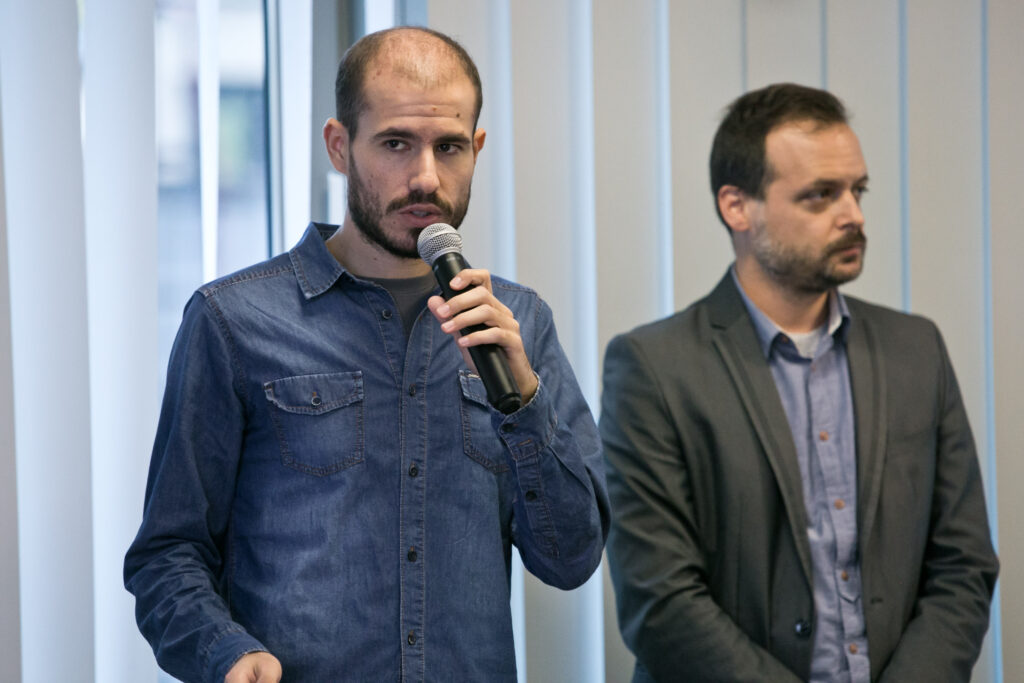
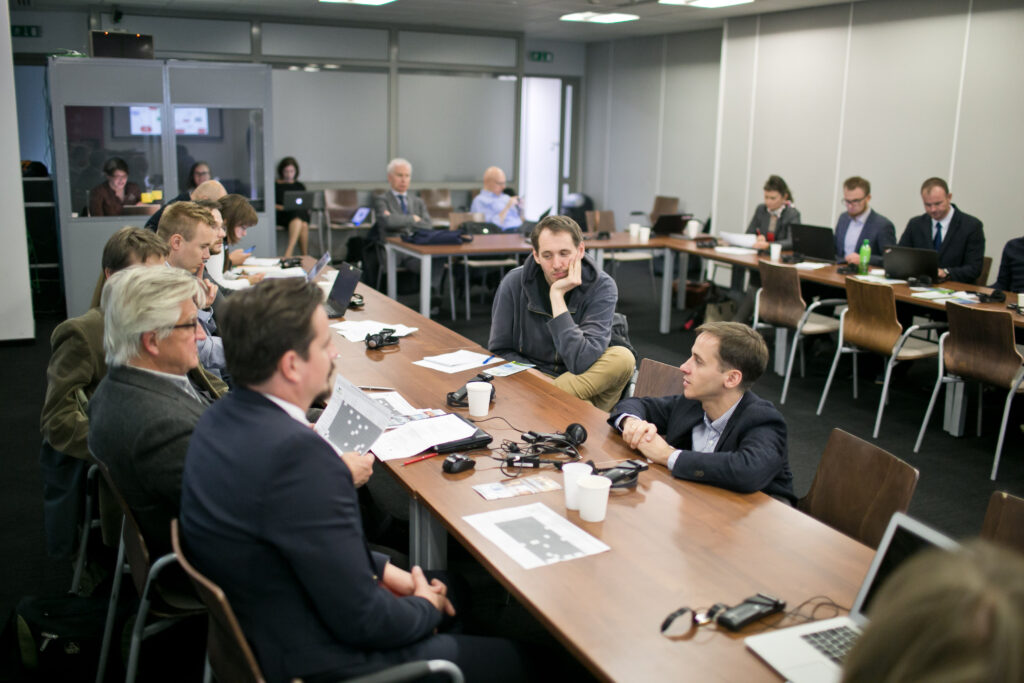
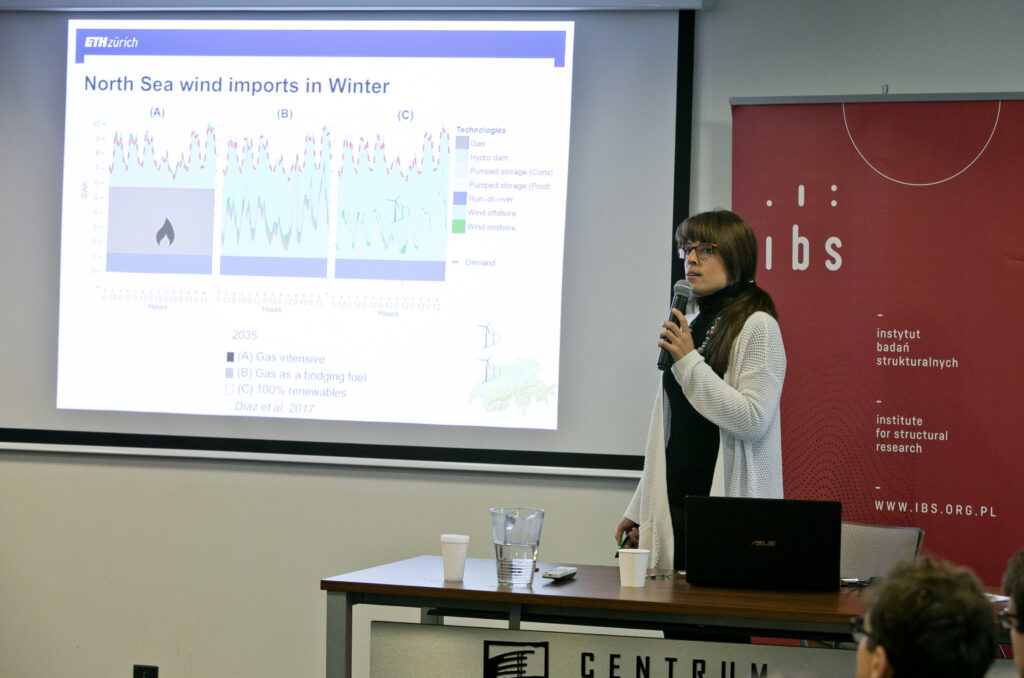
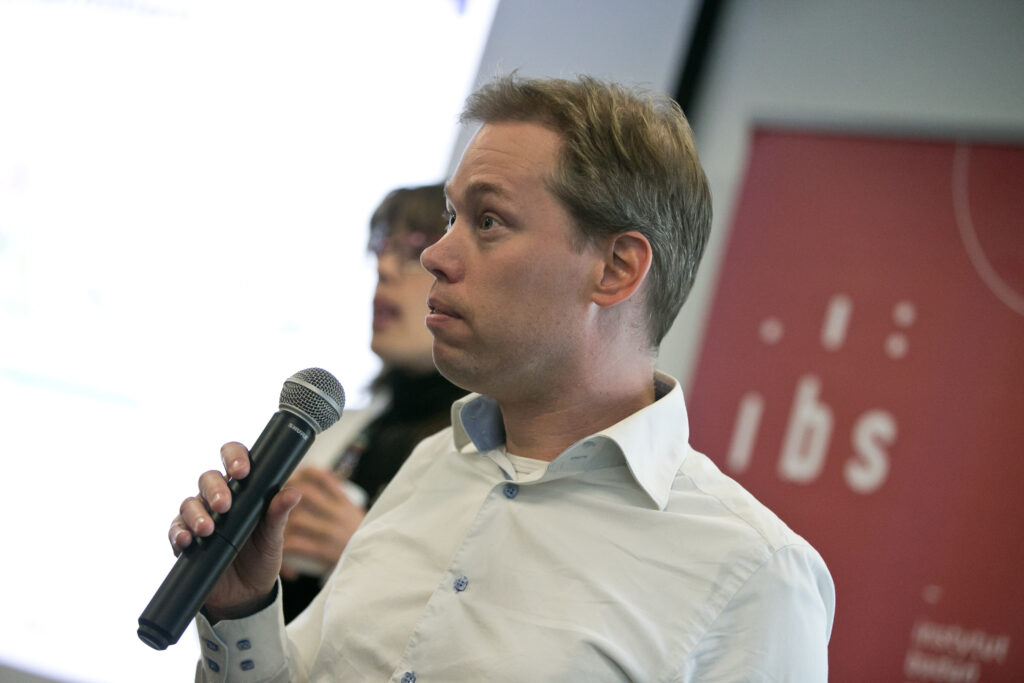
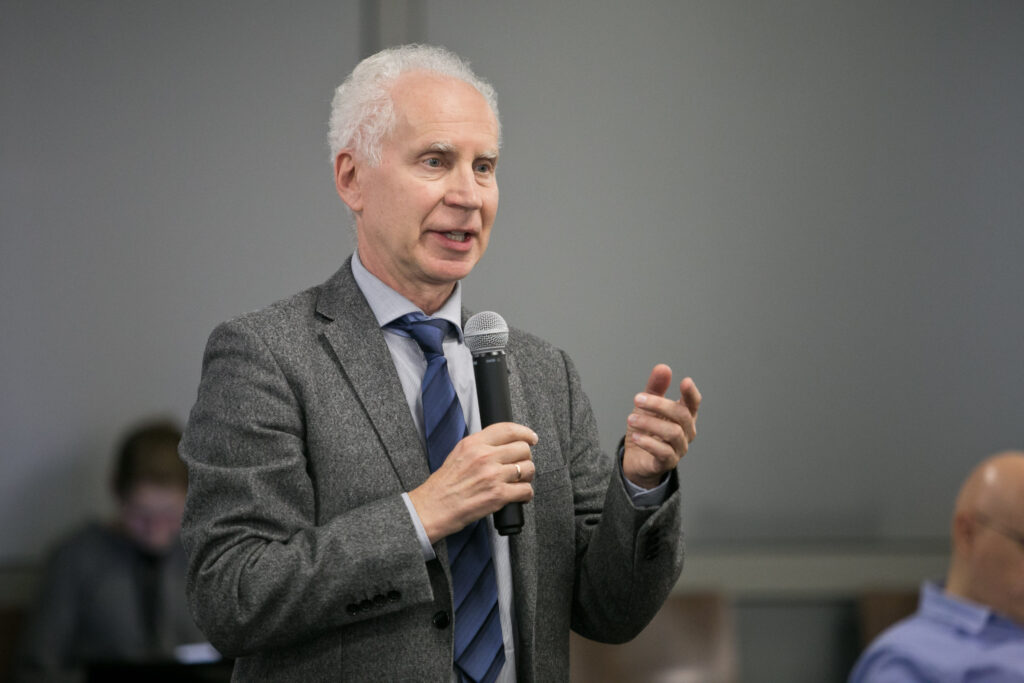
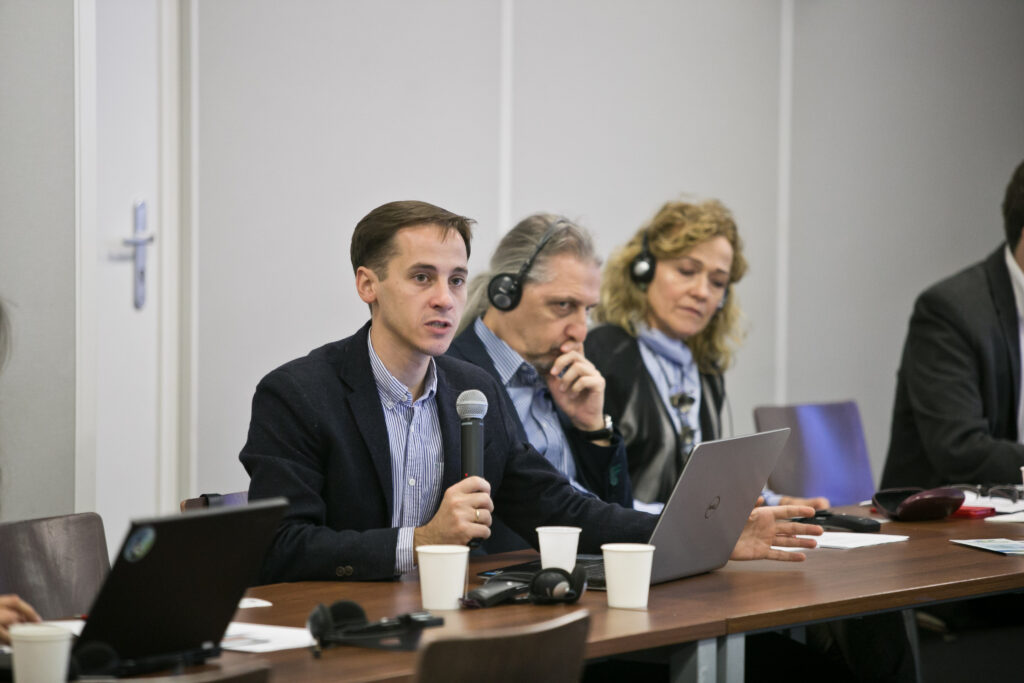
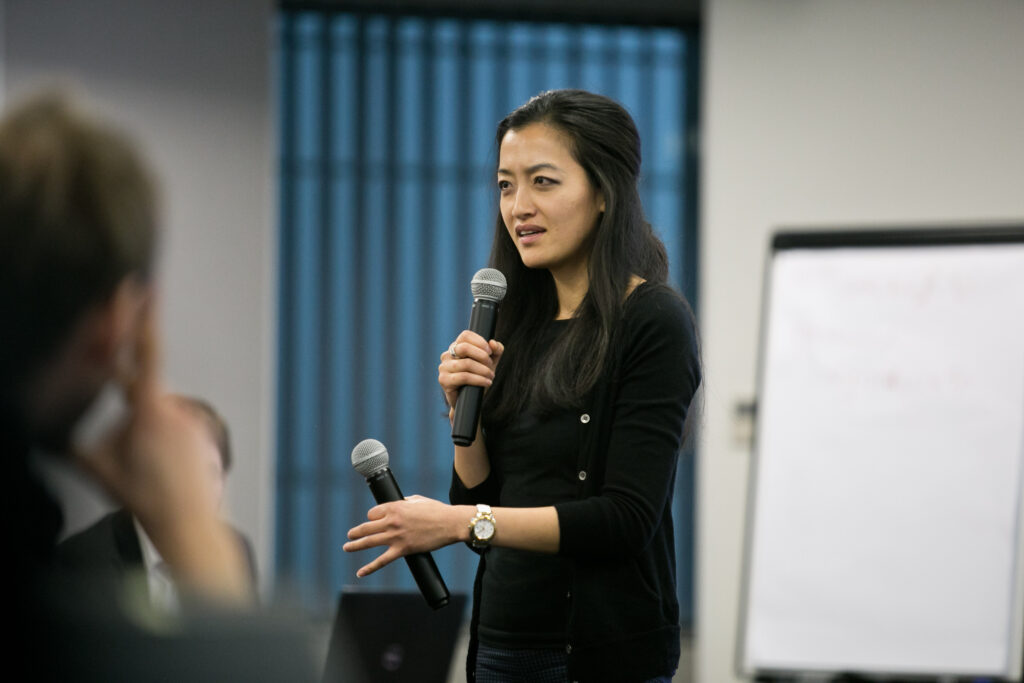
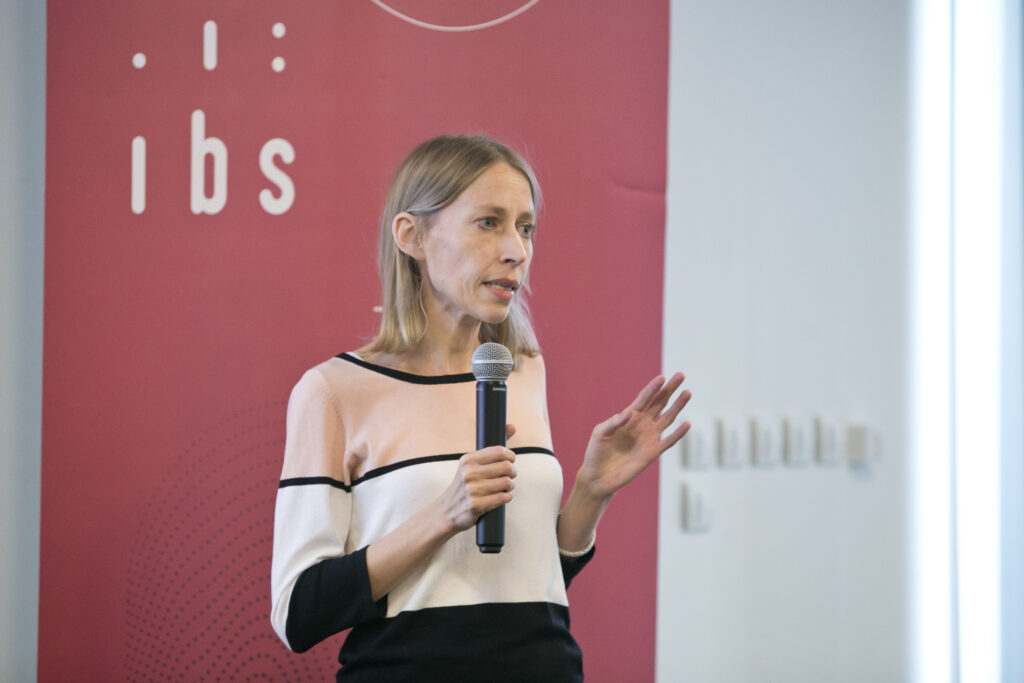
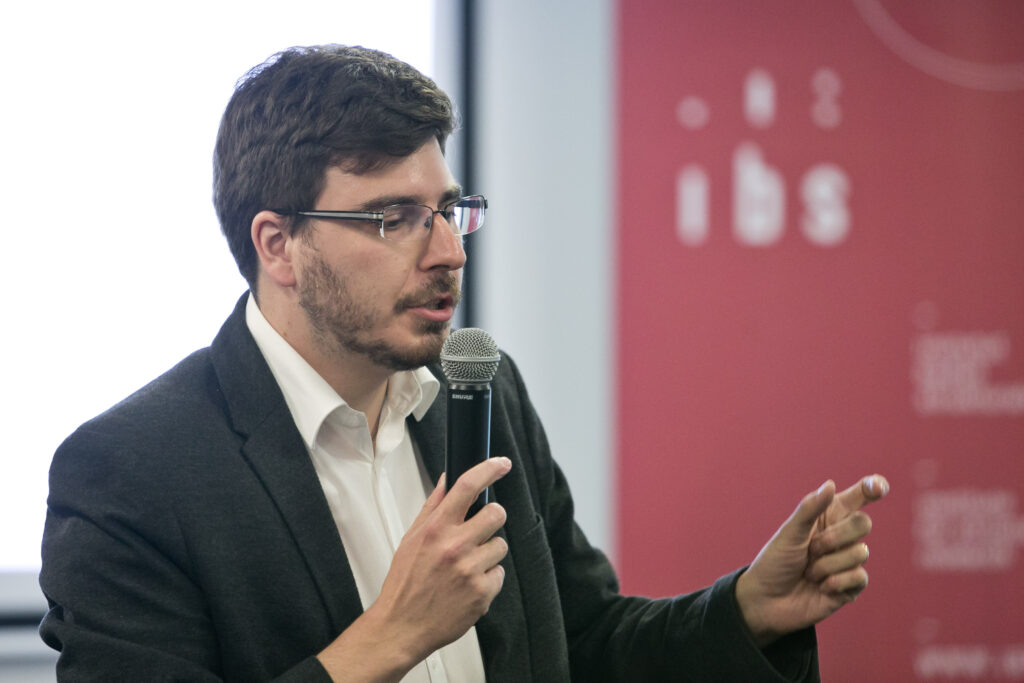
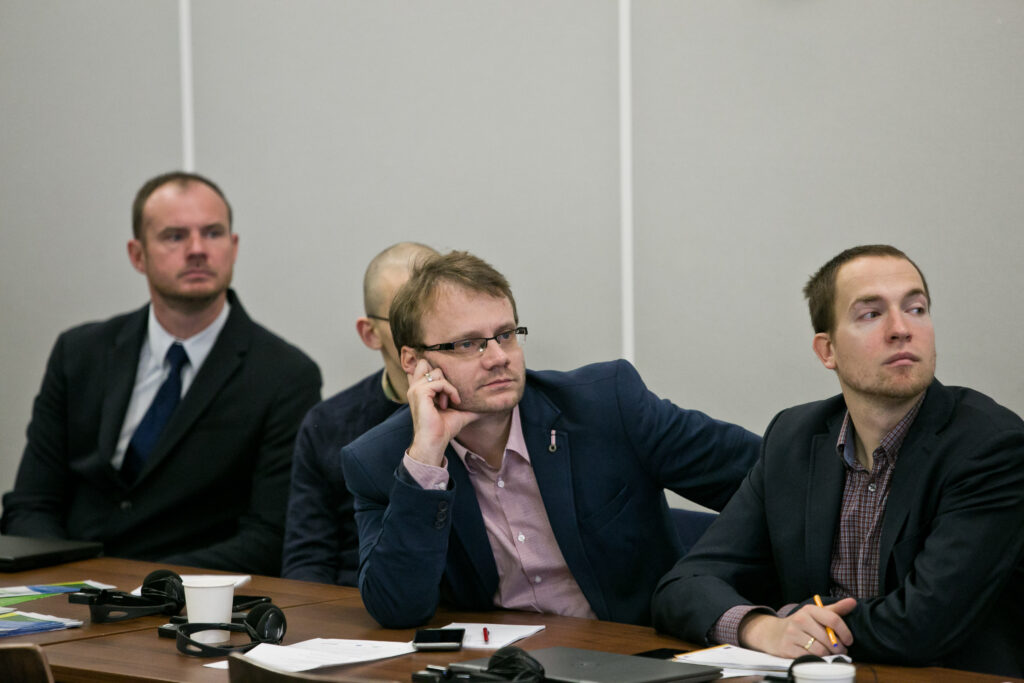
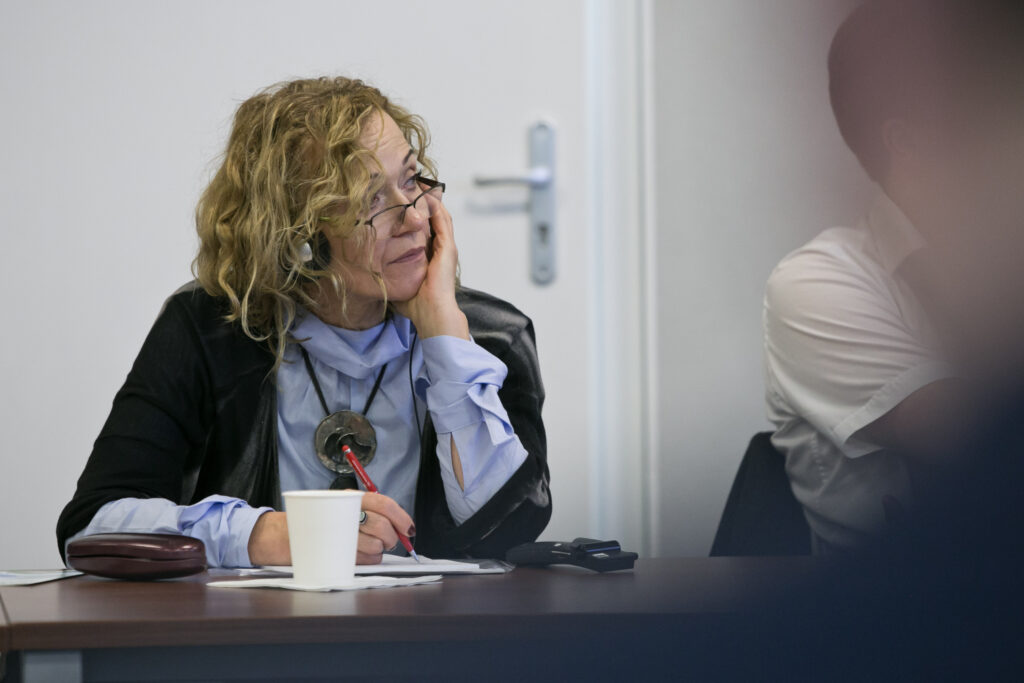
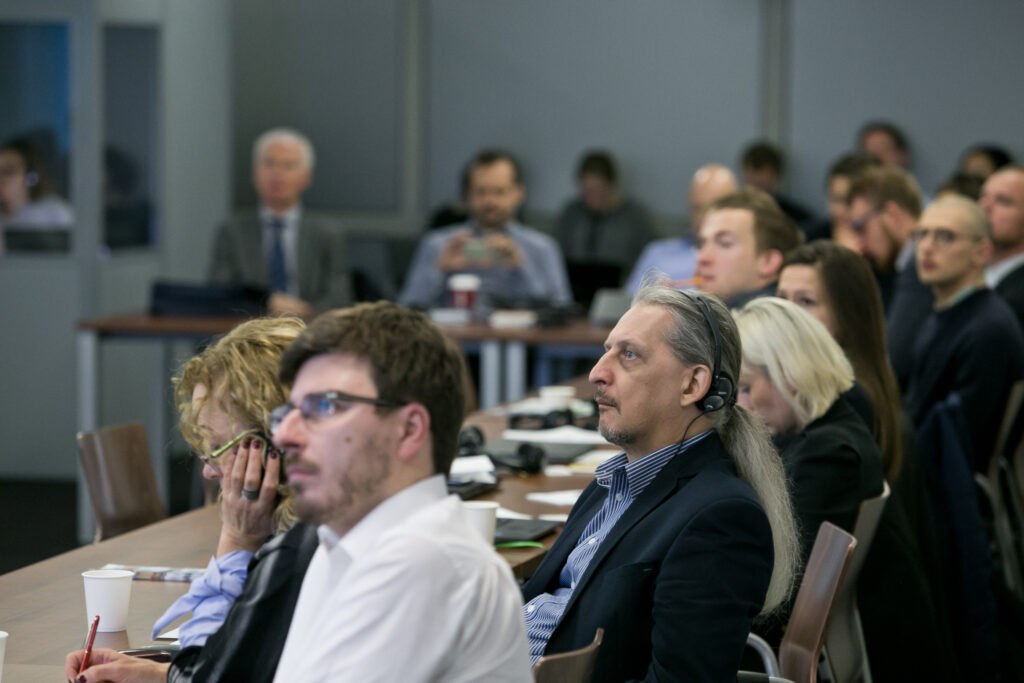
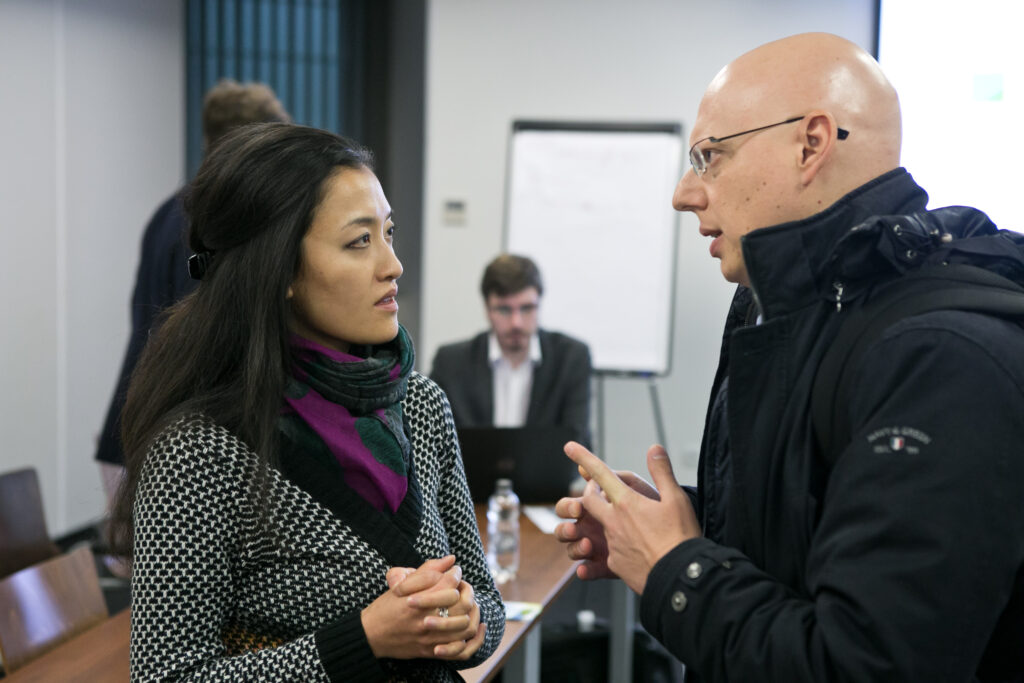
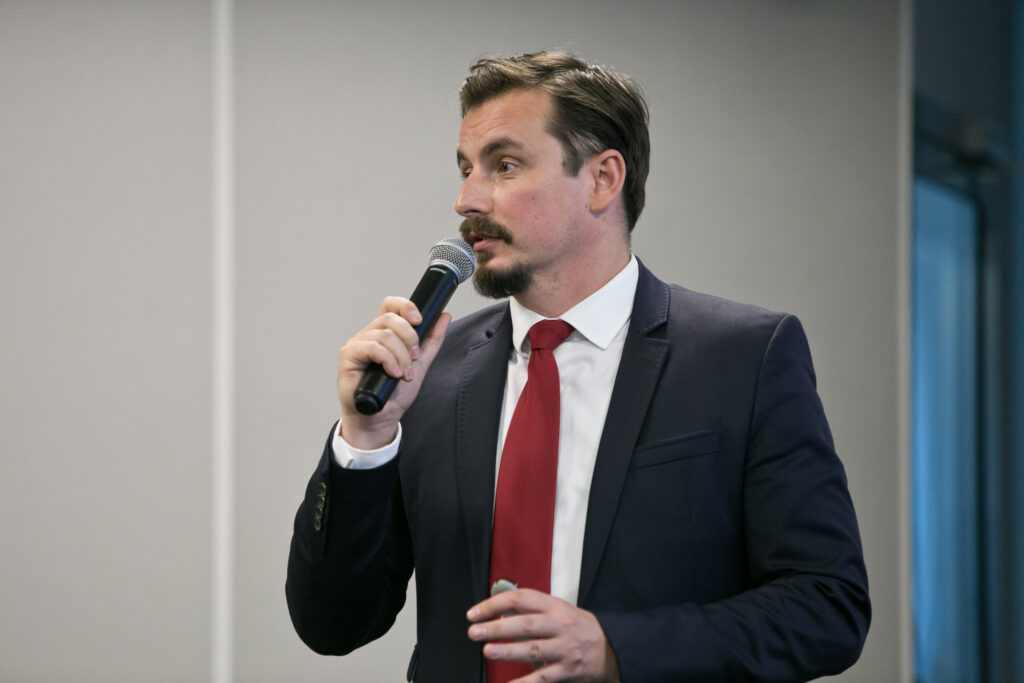
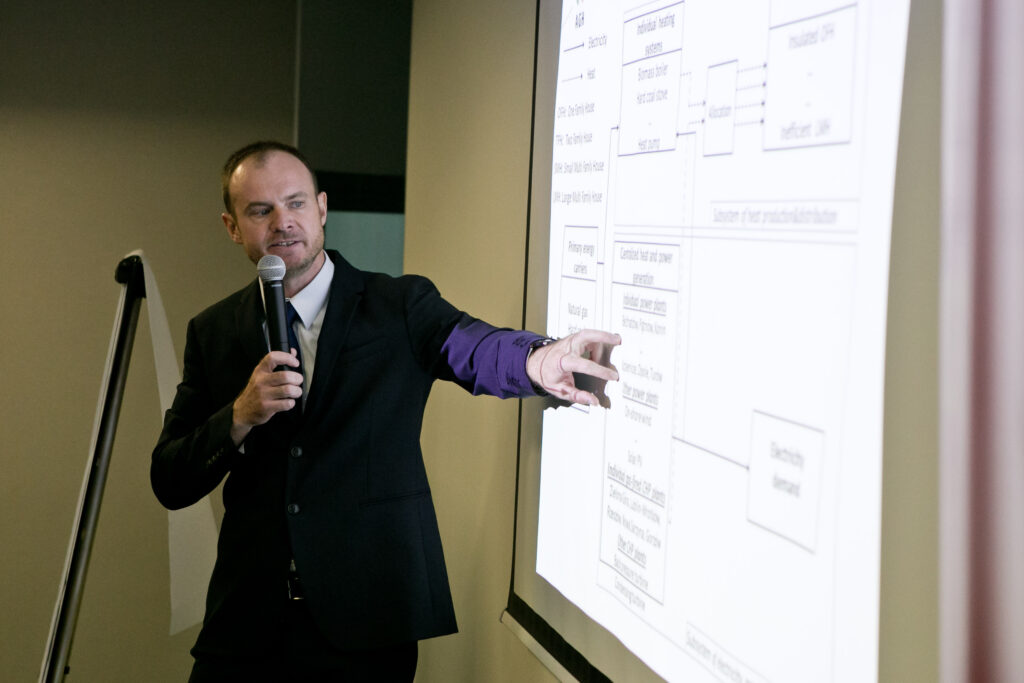
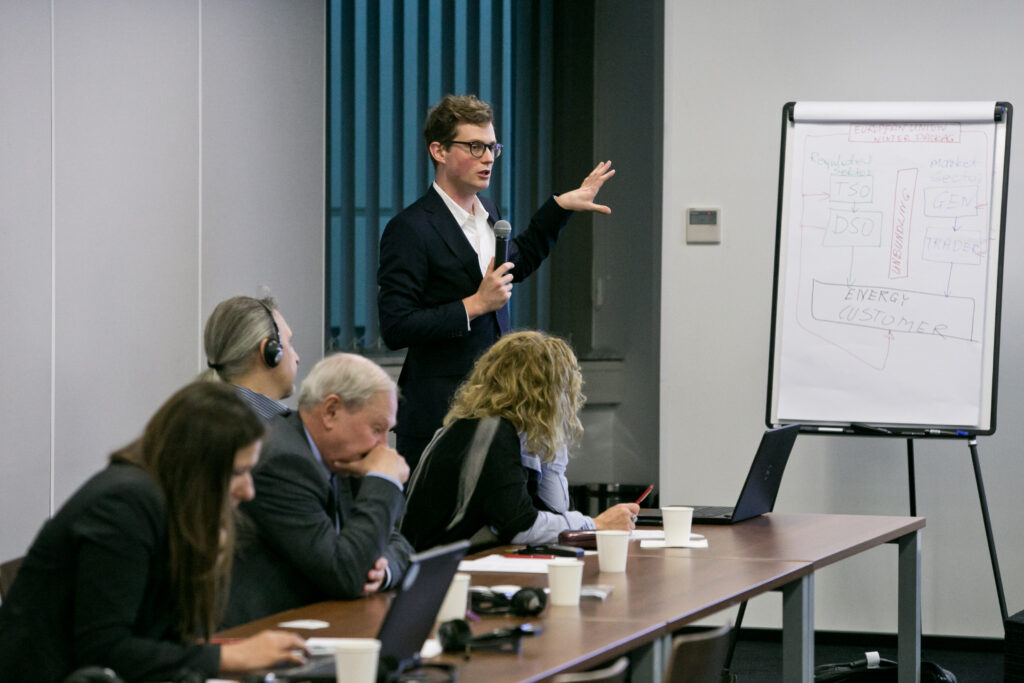
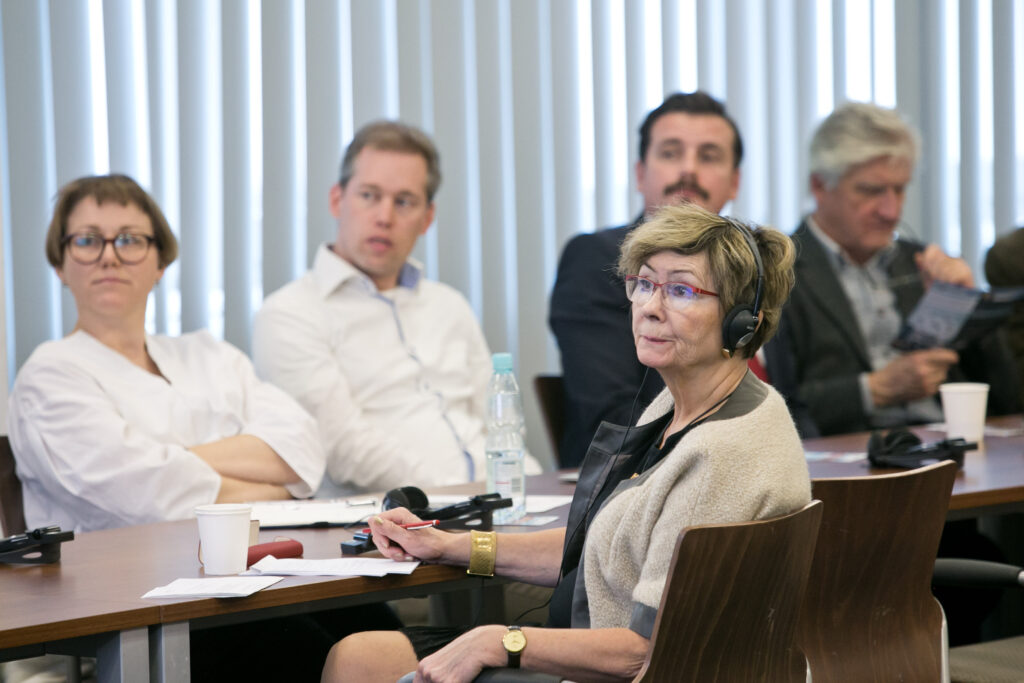
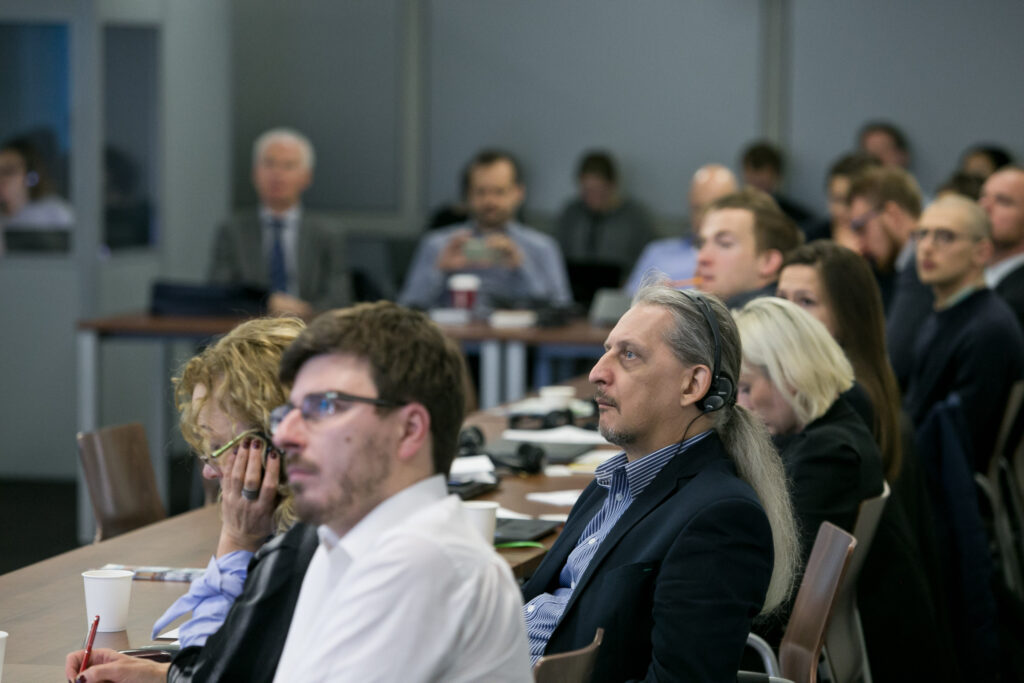
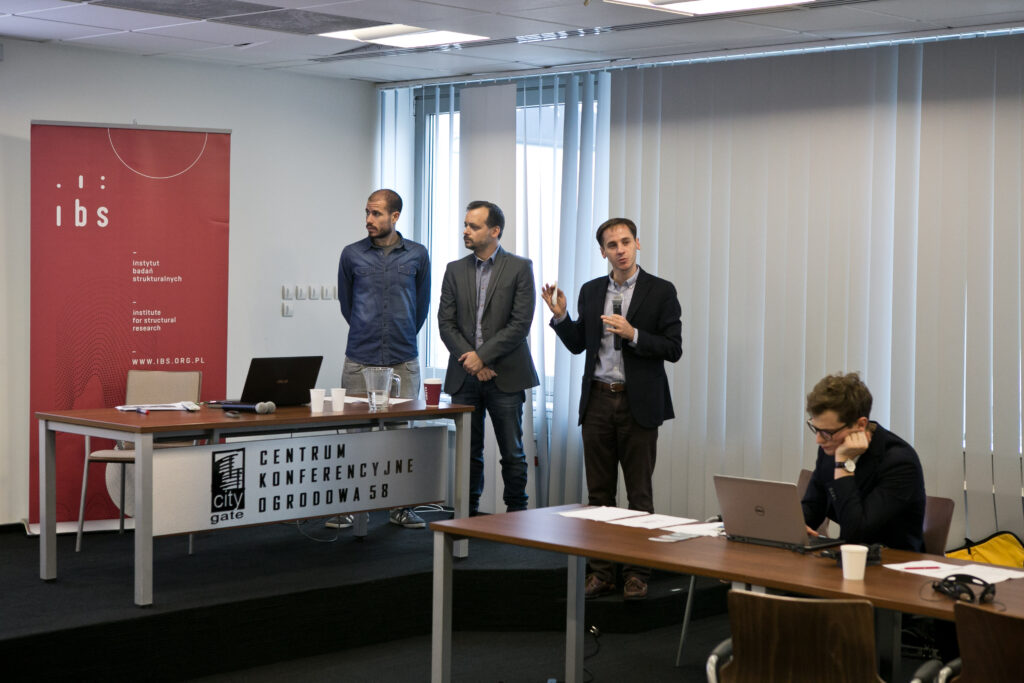
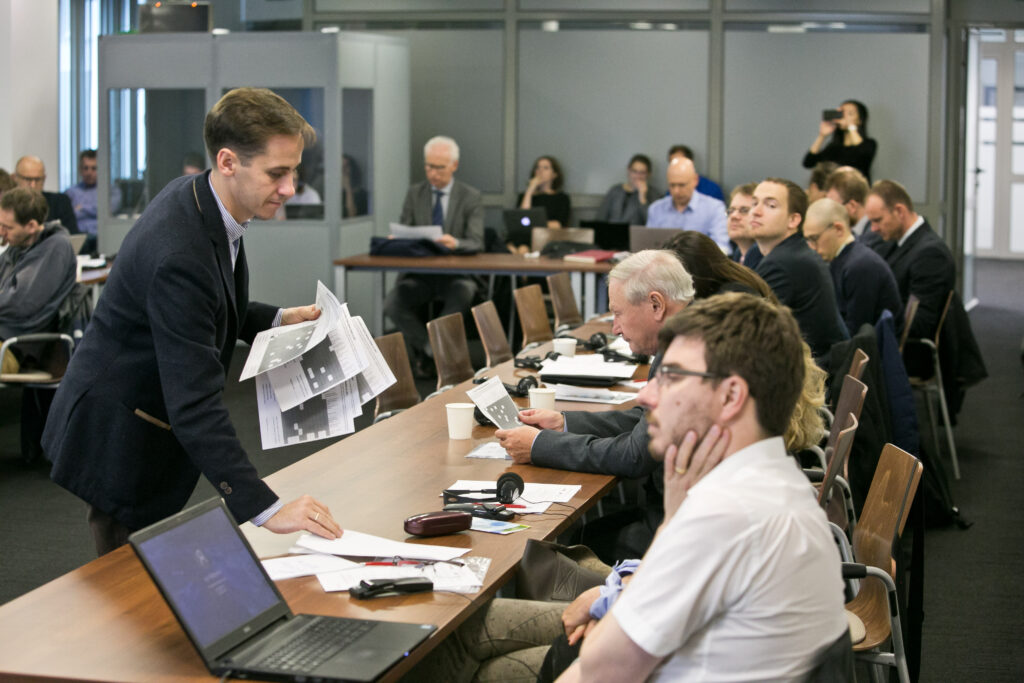
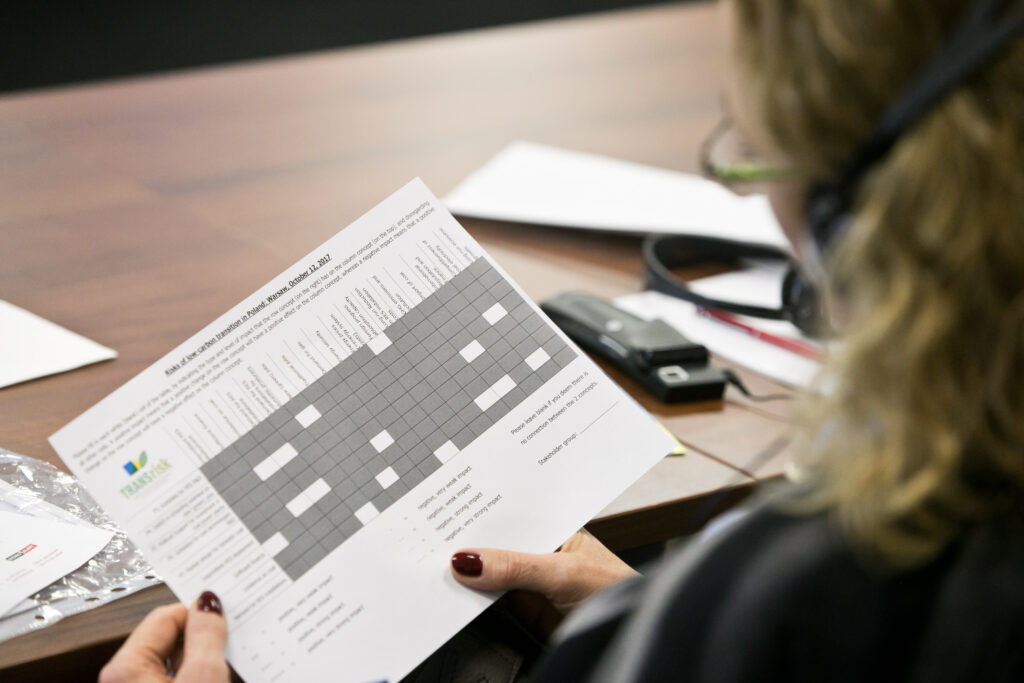
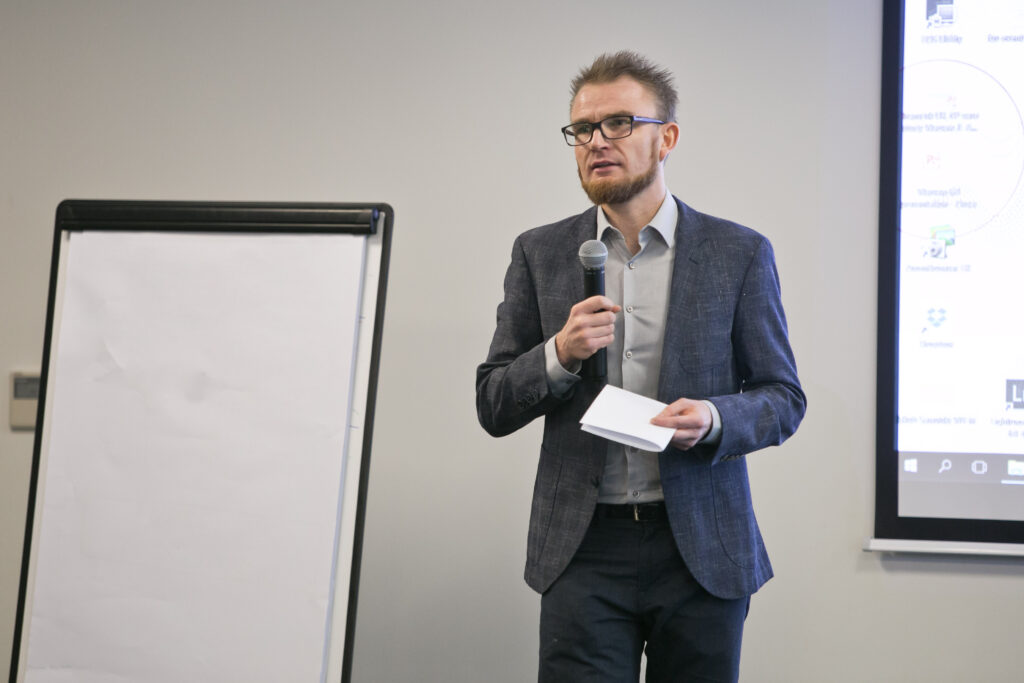
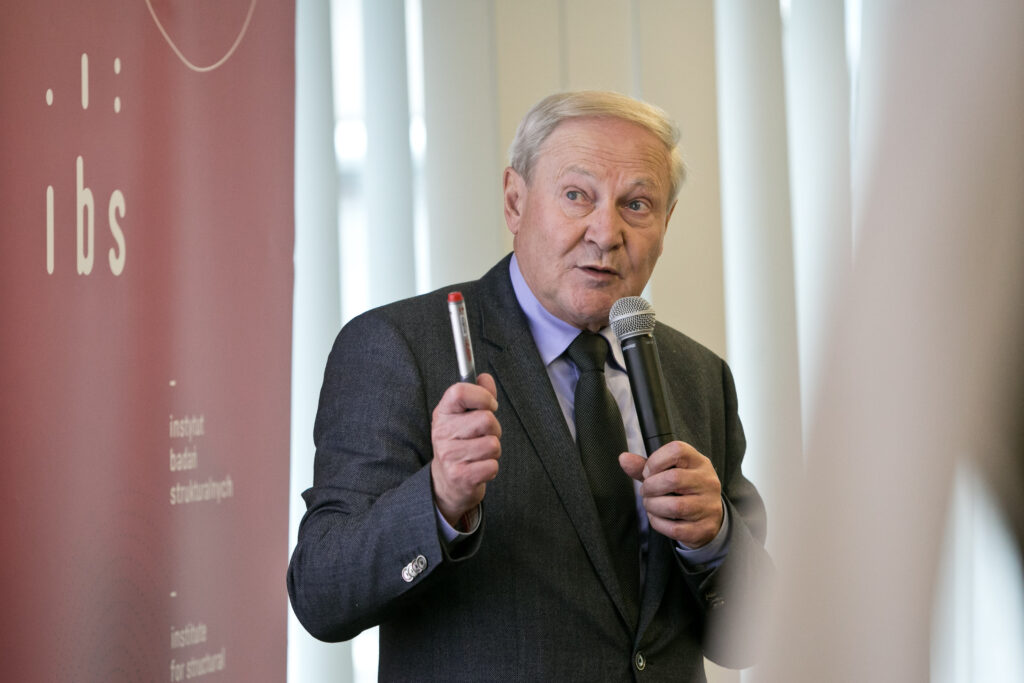

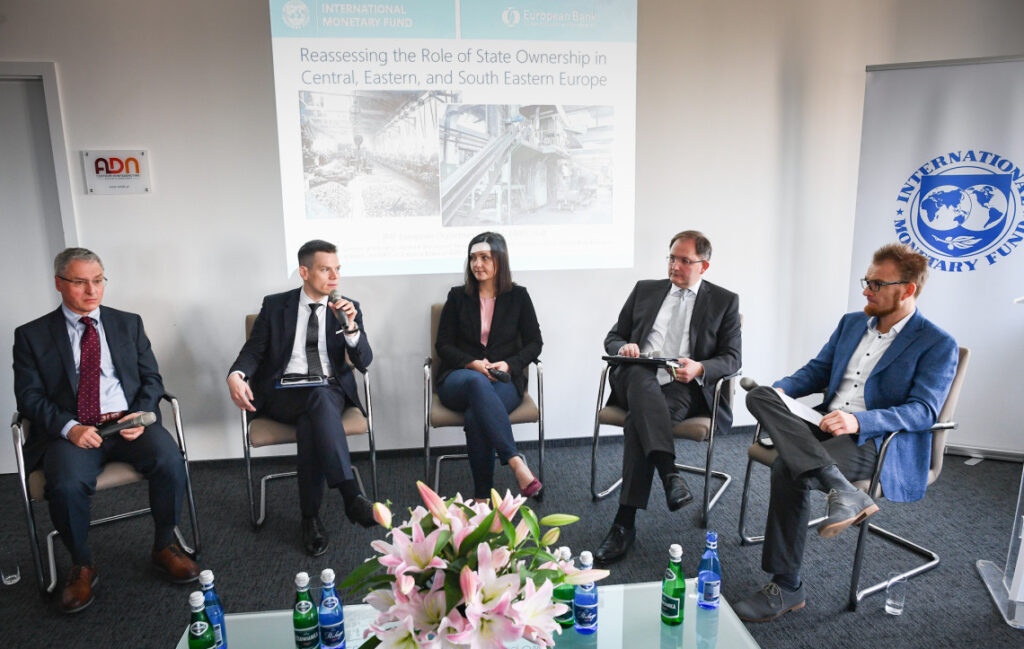
photos: Kuba Kiljan (photo gallery)
*The seminar was financially supported by the TRANSrisk project funded from the European Union’s Horizon 2020 (under grant agreement no 642260) and by the Minister of Science and Higher Education in Poland from resources for science dissemination (No. 892/P-DUN/2017).

- 12.30 – 13.30 Lunch
- 13.30 – 14.10 Opening session: Available transition pathways and associated risksPiotr Lewandowski (Institute for Structural Research – IBS) Representative of the government (to be confirmed) Prof. Władysław Mielczarski (Łódź University of Technology – PŁ) Robert Jeszke (National Centre for Emissions Management – KOBiZE)
- 14.10 – 15.45 Session I
- The role of coal in Polish Energy MixDr Artur Wyrwa (AGH University of Science and Technology)
- The costs of low-carbon transition for the labour marketMarek Antosiewicz (Institute for Structural Research – IBS)
- Fuzzy Cognitive Mapping method for structuring Stakeholder’s opinion on low-carbon transition: presentation and excerciseProf. Haris Doukas (National Technical University of Athens – NTUA) Alexandros Nikas (National Technical University of Athens – NTUA) Aleksander Szpor (Institute for Structural Research – IBS)
- 15.45 – 16.00 Coffee break
- 16.00 – 17.15 Session II
- Do we need gas as a bridging fuel? A case study of the electricity systemPaula Diaz (Swiss Federal Institute of Technology in Zurich – ETH Zurich) Dr Oscar van Vliet (Swiss Federal Institute of Technology in Zurich – ETH Zurich)
- Diversification of investments in energy technologies and a transition to a low-carbon economyDr hab. Karolina Safarzyńska (University of Warsaw)
- When and how to switch to green R&D?Dr Jan Witajewski-Baltvilks (Institute for Structural Research – IBS)
- SummaryDr Jan Witajewski-Baltvilks (Institute for Structural Research – IBS)
 R.-Jeszke-EUA-prices-in-EU-ETS-1.pdf
R.-Jeszke-EUA-prices-in-EU-ETS-1.pdf
 M.-Antosiewicz-The-costs-of-low-carbon-transition-for-the-labour-market-1.pdf
M.-Antosiewicz-The-costs-of-low-carbon-transition-for-the-labour-market-1.pdf
 A.-Szpor-J.Witajewski-Baltvilks-H.-Doukas-A.-Nikas-A-Fuzzy-Cognitive-Mapping-risk-analysis-1.pdf
A.-Szpor-J.Witajewski-Baltvilks-H.-Doukas-A.-Nikas-A-Fuzzy-Cognitive-Mapping-risk-analysis-1.pdf
 P.-Diaz-O.-van-Vliet-Do-we-need-gas-as-bridging-fuel-1.pdf
P.-Diaz-O.-van-Vliet-Do-we-need-gas-as-bridging-fuel-1.pdf
 IBS_TRANSrisk_Seminar_12.10.17_programme.pdf
IBS_TRANSrisk_Seminar_12.10.17_programme.pdf


